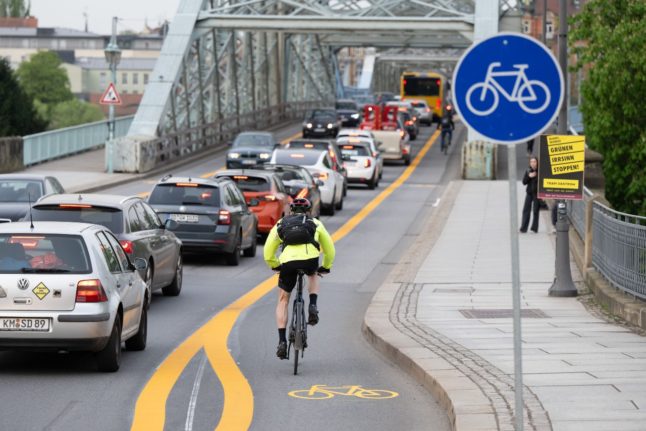In a letter sent by the Free Democrat (FDP) politician to leaders of the traffic-light coalition, Wissing called for amendments to the current climate law to be brought in as soon as possible to avoid drastic measures.
“The fact that the amendment is still not in force leads to considerable legal and factual uncertainties that serve neither the climate nor the reputation of the federal government,” he wrote in the letter, which was obtained by Bild.
Wissing, who has long been opposed to climate measures such as a motorway speed limit, is pushing for the government to bring in an amendment that would ease stringent climate rules.
Rather than facing individual emissions targets, the amendment would let emissions-heavy sectors balance their emissions against those who had met their targets.
According to the Transport Minister, if the government doesn’t take steps to relax its strict climate rules before mid-July, the ministry would have to introduce a ban on drivers in order to hit its targets.
“A corresponding reduction in traffic would only be possible through restrictive measures that are difficult to communicate to the population, such as comprehensive and indefinite driving bans on Saturdays and Sundays,” he wrote.
READ ALSO: Where in Germany are diesel cars banned?
However, Julia Verlinden, the deputy leader of the Greens parliamentary group, hit back at Wissing, slamming his claims as “false”.
“A minister should not stoke up people’s concerns for no good reason,” she told DPA.
The FDP politician’s letter was also criticised by environment protection group Greenpeace, who accused Wissing of trying to capitalise on his own failures.
“The transport minister is shamelessly and transparently trying to turn the possible consequences of his own failures into political pressure,” Greenpeace mobility expert Clara Thompson told DPA.
After two years of blocking all climate protection measures in his ministry, “now he is painting horror scenarios on the wall so that he won’t have to do anything in future,” she added.
Climate reforms
Back in March, official statistics revealed that the transport sector had once again fallen short of legally binding climate targets for 2023.
Under the current climate law, industries in Germany must cut harmful emissions by 65 percent between 1990 and 2030.
READ ALSO: German government loses key climate court case
Various sectors, such as transport, construction, industry and energy are also held to legally binding annual emission targets.
If ministers overshoot these targets, they must introduce a package of emergency measures to rapidly cut emissions and get back on track.
On Monday, the Expert Council for Climate Protection is expect to confirm the 2023 emissions figures and ask the Transport Ministry to rapidly introduce new measures.
Along with his FDP colleagues, Wissing has been a staunch opponent of climate protection measures such as the introduction of a speed limit – or Tempolimit – on the Autobahn.
READ ALSO: Germany needs speed limits on the Autobahn, minister insists
The party was also instrumental in forcing a reform of the current climate law.
When the amendments come into force, the government as a whole will decide on climate protection measures for industries that are producing too many emissions.
However, the emergency measures will only be introduced if targets are missed two years in a row, and sectors will be able to ‘share’ their extra emissions with industries that have come in under their targets.



 Please whitelist us to continue reading.
Please whitelist us to continue reading.
How do these people get into power?